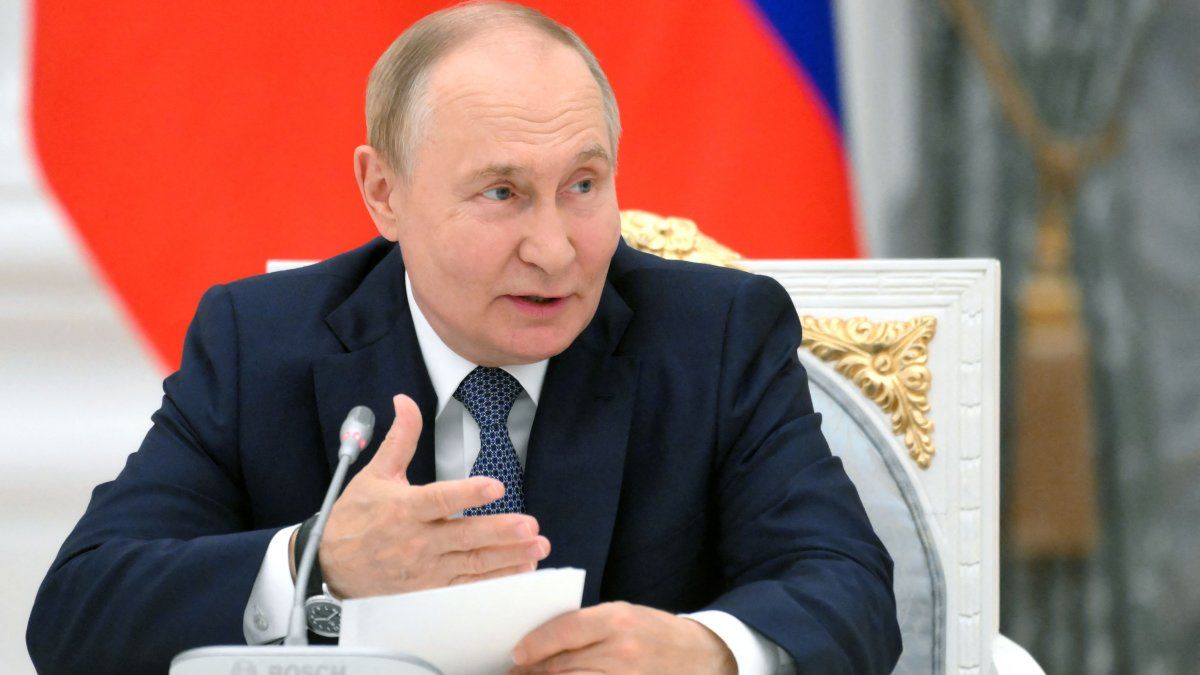For Marull, the change of Silvina Batakis in replacement of Martin Guzman in the Ministry of Economy does not bring significant changes in management policy. In addition, he predicted that Argentina will not be able to meet the three binding goals of the agreement with the International Monetary Fund.
Below is the interview that Fernando Marull gave to the journalist Francisco Aldaya, from Bloomberg Line:
Journalist: A classic graph of yours shows the real salary in relation to the electoral result of the ruling party. How do you think that chart will get to August 2023?
Fernando Marull: It is a formal salary in dollars, parallel. That with the rise of the dollar to 300… it has been falling sharply, obviously. And it gives you a thermometer of the middle class. Today compared to the last elections, it is worse. And possibly from here the elections. If the local context does not improve, it will end up much worse. If they don’t control the gap, it would change… What did that graph tell you: salaries in dollars down or with falls, the ruling party doesn’t win. He gets very few votes. I would tell you that today this, this indicator would tell you no. The government should not get more than it got in the legislative elections. Obviously the pocket of the middle class is an indicator, it is not the only variable. Then there is the insecurity, and the electoral offer that there is going to be.
Q.: The cut in energy subsidies would be greater next year, as a percentage of GDP…
FM: Yes, but rate adjustments are not going to be an issue. They were not with this government, with an agreement with the Fund. Note that 2022 was going to be a year of rate adjustments, and part of the segment was going to have a 17% rise, and the middle class 40% with 90% inflation. There is hardly going to be any real adjustment. The only one that is going to have a real adjustment is the one that is going to give up the subsidies, which will have increases of 200-300%. But it is only for the richest 10%. But judging by how food prices are rising and wages are falling behind, many more people are beginning to ask to continue with the subsidy. The limit is the family group that earns $350,000, and today an Argentine family does not earn that.
Q.: What balance do you make, once the cabinet changes have been finalized and Batakis’s first measures are known, of the economic direction that the Government is taking?
FM: I think the exchange of Guzmán for Batakis is continuity. It is a “go on, go on” policy of Alberto Fernández, which is to procrastinate and let the problems go away. Go loose That was Guzmán, at least in the last year and a half, because the first half year he had started a little better. But then it was very bad. Guzmán’s 2021 and 2022 were very bad. Batakis is just that, procrastinating and getting loose. Adjust a little the exchange rate, the debt in pesos, the salaries. The issue is that you don’t have the back today in July that Guzmán had last year. The political strategy is to hold out until the elections. And if eventually it does not hold out, some other change in the economic team will come to try to give the last stretch. Possibly the opportunists from the Massa group will come, and obviously now they’ve washed their hands, but over there they see that in December they can’t take any more Batakis, and there they do grab.
Q.: What do you read of the role that Cristina is having in terms of defining economic policy? Is it the most relevant factor today?
FM: It’s been a couple of months now. Since she started to come out of the silence, and she started to write the letters. She got out of hers from her passive position and she’s already very active. She does and undoes, she changes cabinets, she changes ministers. She cleaned all the economic equipment for Alberto Fernández. Because she is playing to get to the government to the elections without exploding. It is the same thing that Fernández, Batakis, and Cristina herself are wanting to do. Without it exploding, without this ending a devaluation. Let’s define, out there for the foreign public that Argentina already has an inflation floor of 90% in 2022, and we, economists, continue to talk about it not yet exploded. Someone from Latin America would say yes, but for an Argentine, no. How do we define it? Well, a devaluation of the official dollar of 30-40% that adds 40% more inflation. That is exploding. It is that the issuance of pesos that took place in the last two years generates the impact that the inflationary acceleration begins to take on hyperinflation rhythms. Levels above three digits of inflation, that’s exploding.
Q.: And even so, there is talk that in the second half of the year there would be an uncontrolled emission. Would that imply definitely deviating from what was agreed with the IMF for this year?
FM: Those of us who do the numbers well, and look at the agreement with the Fund day by day, see that the three goals with the Fund have already been unfulfilled. The fiscal, the monetary is unfulfilled, and that of net reserves as well. Look what happened in June. There was an agreement with the IMF, and the goals were softened. Actually it’s like they allowed them to formally comply. Look what happened with the second goal, the monetary one. Until the end of June you could spend more or less $450,000 million accumulated. But there was a debt crisis of pesos during June, that the central bank issued $1.2 billion. In other words, it issued only in June two monetary goals for the year. Ah, but the monetary goal is met. I explain? The monetary goal has been met because the Fund only accounts for issues to finance the fiscal deficit, but not to finance debt payments. So, of course, conclusion, the spirit of the monetary issue goal is broken, because you have already issued two. We are lying to the lonely. And the third point, the goal of net reserves for June was US$6.4 billion, then they lowered it to then they lowered it to US$5.8 billion, then to US$5 billion, and then there was an exchange holiday at the end of June that allowed US$1.5 billion to be purchased millions. All lies. And now look at July as the BCRA has already sold US$1,000 million dollars, and we are at approximately US$2,000 million dollars, when the goal for September is US$6,800 million dollars. I explain? We are quite far from the goals.
Q.: How do you locate this crisis in what has been Argentine history? In relation to 1989, to 2001…
FM: I don’t think so, but it looks like it’s shaping up to end badly. I think not because the macroeconomic imbalances are high but they are not as bad as those in the 1970s, or in the 1980s, where Argentina had to live with very high levels of inflation and fiscal deficits of 10 points of GDP. . Now whether you like it or not, you are more or less in the middle. You are at 4.5% of the Treasury. Let’s go to the case of Rodrigazo in June 1975. The economy was very similar to how it is now, but what happened? There were three conditions that triggered the Rodrigazo, which was hyperinflation. Power vacuum, devaluation and salary. It is as if today Alberto Fernández is left alone in government, with the opposition being Together for Change, Cristina, the unions, where the official dollar escapes him and he has to devalue 100% to narrow the gap, and in turn, Moyano asks for a 100% monthly parity. That explodes. If that happens, 2023 can end worse than a Rodrigazo, but I don’t think it will happen.
Q.: If I look at the blue dollar or the Contado con Liqui, the prices in Argentina are given away. But, at the same time, these prices accompany the growth of the monetary base and the rhythm of inflation. Is the dollar expensive or cheap?
FM: The official dollar at 130 is clearly not balanced. But $300 is possibly out of balance. Obviously we have to see how the story ends a year from now. But if it ended up the way we are today, it’s historically a high exchange rate. Now the 130 is too cheap. The truth is always in the middle ground. What it’s telling us is that the equilibrium dollar is somewhere between 130 and 300, possibly. At 180 or 190. In the future, there is going to be some kind of unification. When there is a change of government, because it is part of the solution: tell society that once again, this government broke everything and it has to be fixed.
Q.: What situation was or will be worse to inherit: 2015, 2019 or 2023?
FM: Today you are worse than in 2015. Quite a lot. In 2019, the middle class voted against Macri, but he had made the adjustment, and thanks to that he allowed this government not to make any adjustments. This government inherited something that was relatively OK. The rate adjustment was already done, there were reserves in the BCRA. You were clearly in crisis, but Alberto Fernández, contrary to what he said, inherited a much better economy than the one he is going to leave to the next government.
Q.: What could happen with the rollover of the debt in pesos and the net financing during the rest of 2022?
FM: To put in context. On June 7, a run against the debt in pesos begins, which basically brought the rollover to zero, and the BCRA had to come to the rescue. He issued a lot of pesos, almost two points of GDP in a month, to monetize that debt. And then he was taking action. He gave puts to the banks to guarantee them a minimum price, he was raising the interest rate, last week he invented a rate broker. I would practically tell you they have contained the crisis. Let’s say there are maturities of 500,000 million per month. Of that, half is intra-public sector. In other words, there is no risk of rollover there. And the banks have half of the other $250 billion, and the level of rollover is going to be high, too, because of the measures they took. So what is at risk of rollover is actually only $125 billion per month. That said, the crisis is relatively contained. I’m not saying it’s fixed. The Treasury is going to have to keep an eye on the peso debt, but the risk today is more related to the lack of reserves. The lack of reserves is the most worrying.
Q.: Any point that we have not touched?
FM: The government has few bullets left, but the government itself is purely and exclusively to blame for this situation, which did nothing to prevent this situation. He did nothing to avoid reaching July 2022 with a fiscal deficit and high issuance, without reservations, and still lying to the IMF. high sky-high monetary issue, no reserves, still lying to the bottom. A year from now, the risk of another crisis is quite probable, but let’s hope that it can be avoided and the economic team can and can take a turn, a change of direction.
Source: Ambito
David William is a talented author who has made a name for himself in the world of writing. He is a professional author who writes on a wide range of topics, from general interest to opinion news. David is currently working as a writer at 24 hours worlds where he brings his unique perspective and in-depth research to his articles, making them both informative and engaging.




